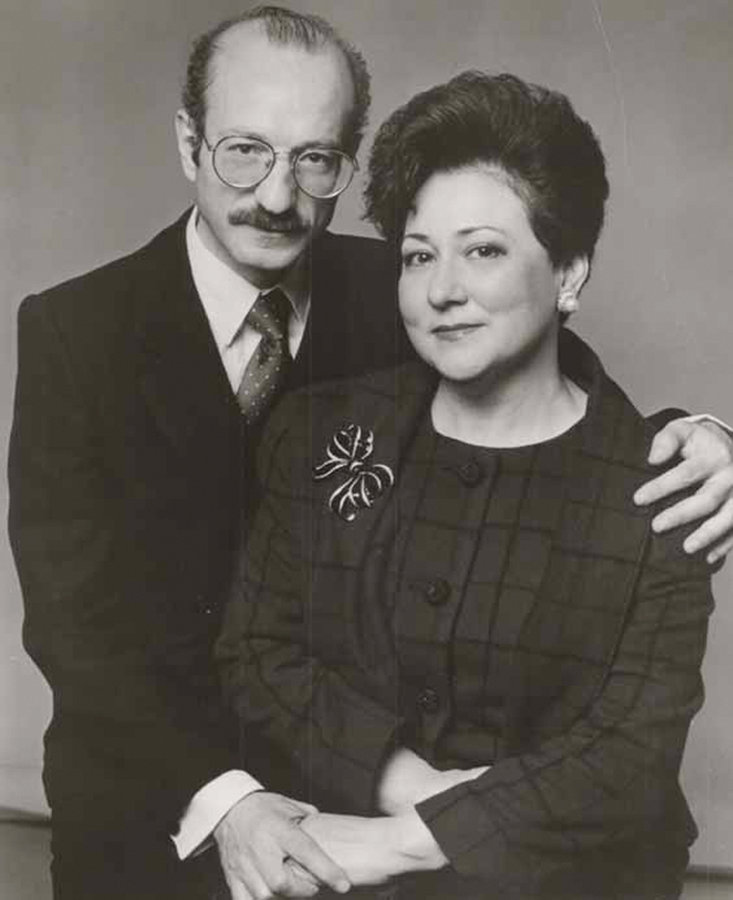Carmela Altamura is larger than life, both with her operatic talents and with the new-star discovery medium she created in 1988, known as the Altamura/Caruso International Voice Competition. Her non-profit contest attracts potential opera greats from all over the world.
Her penchant for the dramatic overture of opera was mirrored in her young life when she left Sicily at the age of eight on an ocean liner to join her family in America. She heard music playing on the ship while she slept, but because the entertainment hall did not allow children, she charmed a Spanish noble lady into disguising her as an adult.
The young Altamura made anything but a timid entrance into the hall. She immediately asked the captain to dance, and he then asked her if she could sing.
When she answered yes, it was not only an understatement, but the beginning of a life-path that would take her to the top.
“It all started with a big bang of providential serendipity.” – Carmela Altamura
____________
Unfortunately, despite her vocal successes, “God had other plans for me,” she said.
Turning tragedy into triumph
“It was brewing in me mysteriously – a disease of the heart,” Altamura explained. But she had no idea at the time. She often became tired and faint while rehearsing, but she thought it was par for the course of a physically demanding career.
Around the same time, she discovered that her 4-year-old son had developed juvenile diabetes. Between the two medical emergencies, Altamura was forced to stop singing and return home to care for her son.
At first, she admitted, she was depressed. Because of heart disease, she had to learn to refocus the intense artistic energy she had spent her entire life cultivating.
“Instead of victimizing myself, I turned it into an asset,” Altamura said.
She and her husband Leonard began the Altamura School for the Fine and Performing Arts in Union City in 1970: a school that gave the “many expatriate families in the community the opportunity to develop their musical talents.”
And then came the competitions.
From conception to competition
In 1987, Altamura was asked to sing at the unveiling of the postage stamp created in honor of Naples’ famous tenor Enrico Caruso. She found him to be an inspirational luminary in the opera field, and so she was inspired to form a competition in his honor: the Altamura/Caruso International Voice Competition.
At first, she had no idea where to begin.
“They say fools rush in where angels fear to tread,” she said.
Altamura rushed straight to the top. She chose what some considered the biggest opera star of the century, mezzo-soprano Giulietta Simionato, to represent and judge her competition.
Simionato thought Altamura was crazy at first, but eventually with a little persuasion from some influential places (i.e., the current director of Italy’s Teatro della Scala), she agreed.
The first competition took place in 1988, and was sponsored by Altamura and her husband’s non-profit organization, Altamura Inter-Cities Performing Arts, Inc. The Italian Consulate on Park Avenue in New York City donated their facilities for the first few rounds, and when Altamura approached Lincoln Center and requested Bruno Walters Hall (where she had sung herself in the past), they let her have the competition.
“It all started with a big bang of providential serendipity,” Altamura said.
A democratic path to stardom
Altamura did not begin the competition merely for prestige’s sake, but to celebrate a diversity of talent that more traditional opera circles had not entertained before. Most competitions were for males only and did not include Asian or African competitors.
“How wonderful to put people together in a room from different countries,” Altamura said, “and through music, see how they blend and harmonize.”
Altamura also decided to eliminate the age limit, which created something of a scandal. Her vision was to discover singers with “the big voices that mature later,” she said, “to be able to play the big roles. And besides, youth can be quite fickle.”
One of the more prominent stars to emerge from her competition was Kim Josephson, a 35-year-old pastor from Texas with four children who decided to give it a shot in 1992. He went on to play the leading role in La Traviata at the Metropolitan Opera in NYC.
In 1994, Audrey Stutler won the competition and was immediately booked for Atila and Turandot; “which is exactly what I had in mind,” Altamura said.
The most recent competition was held in New York City on Oct. 30, and burgeoning soprano Naomi O’Connell took first place. She will play the role of Zerlina in the Juilliard Opera production of Don Giovanni in April of 2012, and is set to break into the professional opera scene in the United Kingdom the following June as the title role of La Pérchiole with the Garsington Opera.
Altamura sings on occasion, but enjoys her new role in shaping the modern opera scene and infusing it with new life.
“I believe that we ultimately have a job to do in this life,” she said, “and simply because mine changed into something I had not anticipated does not mean it wasn’t for the best.”
For more information on the competition, Inter-Cities Performing Arts, and Altamura’s two music schools, visit www.altocanto.org.
Gennarose Pope may be reached at gpope@hudsonreporter.com
